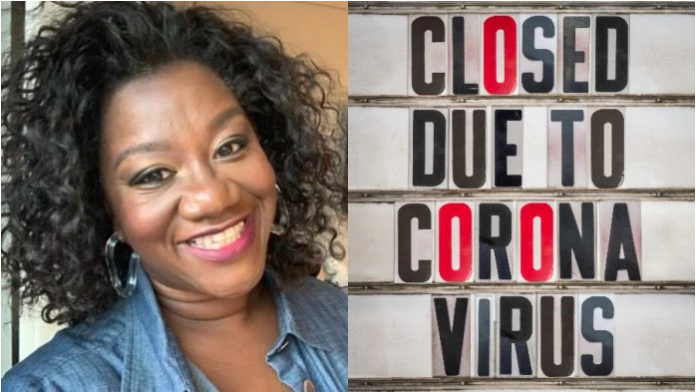Although the recent COVID-19 pandemic has fueled a national conversation about how to create an inclusive and stable economy in times of emergency, for Black Americans the conversation is anything but new.
A growing pandemic only adds more strife to an already “aggressively hostile environment” for Black people and enterprises hustling at a community level.
In the first episode of theGrio’s flagship podcast, Dear Culture, sociologist and professor, Tressie Mcmillian Cottom, Ph.D., breaks down how Black communities are often vulnerable to crisis and challenge in boom and bust economies.
“All those people who are working on the side, hustling on the side- that’s all really legitimate economic activity,” Dr. Millan Cottom tells theGrio‘s Natasha S. Alford. “We’ve got to figure out how to also stimulate that part of the economy because that’s where a lot of Black folks are.”
Dr. McMillan Cottom, who is also the author of the book “Thick: And Other Essays,” does research that prioritizes how Black people at-large confront crisis and power imbalances head-on. Her TIME piece, “Why Do Black Workers Still Have to Hustle to Get Ahead?“ breaks down how traditional on-ramps of opportunity don’t always work for us.
Whether it is the fall of Black Wall Street, the recession and housing crash of 2007, or the decrease of Black homeownership and equity when our economy was expanding, Black people often have to depend on themselves to cope, manage and reimagine new pathways out of difficult times.
“Black folks know how to weigh risks really, really well,” McMillan Cottom tells theGrio. “We learn how to do that as part of our survival skill[s] and our survival mechanism. And I suspect we’ll find a way politically.”
Risk is a critical feature of Black realities when encountering new landscapes like a global pandemic or recession. Throughout our history, Black people had to survive on redirecting and finetuning our efforts with every incoming challenge. Each time, Black people have resisted and recovered through the power of the community.
“So much of our community wealth is in our people,” says McMillan Cottom.
Much of what it means to hustle as a Black person is inextricably linked to community. Not only did Black economies and institutions historically develop to provide both service and support to Black communities, in times of hardship these same institutions sought to take care of their people.
From historically Black colleges and churches to Black hair care providers and other entrepreneurs, everywhere we look there are opportunities for community investment and reinvestment.
“If history is any lesson, politicians have got to figure out a way to carve out the majority of black workers [into the] stimulus,” McMillan Cottom says, referring to the 2 trillion dollar economic stimulus package which would eventually be passed after the taping of the show.
We don’t know whether or not America will manage this growing crisis with the economically disenfranchised populations in mind– however, we do know that Black people will create new grammars to cope and express life, as we always do.
Story credit to Sundus Hassan/The Grio.
Photo credit to The Grio.



































